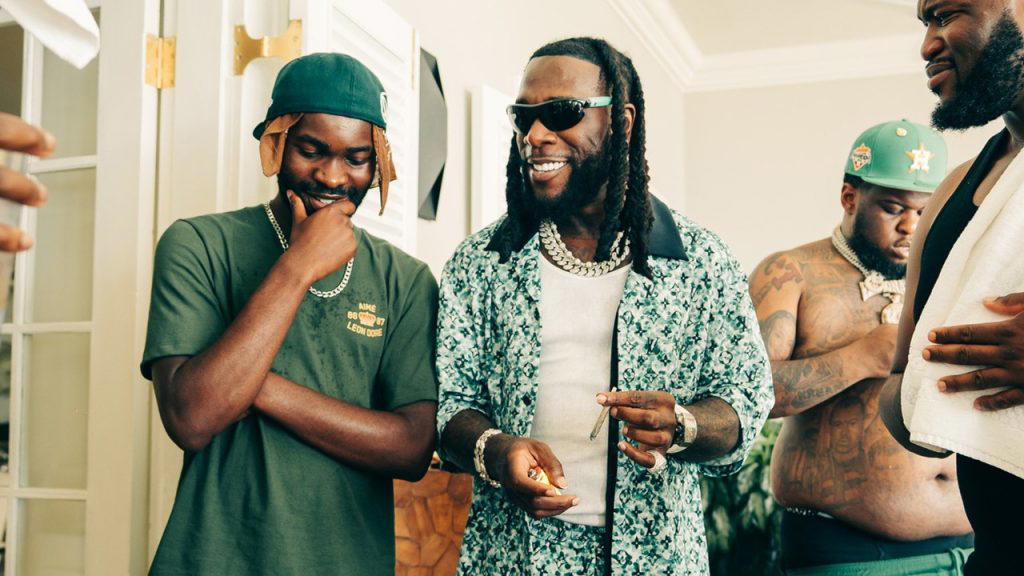Digital revolution transforms Nigerian entertainment

Nigeria’s entertainment sector generated ₦853 billion in 2023, with digital channels accounting
for 62% of total revenue. This marks a sharp increase from 2019 when digital represented just
28% of industry earnings.
Netflix subscriber numbers in Nigeria jumped from 200,000 in 2020 to 1.8 million by late 2023.
Local streaming service iROKOtv recorded 650,000 active users, while Showmax reached
400,000 subscribers across West Africa with Nigeria driving 75% of growth.
Urban television viewership declined 43% between 2019 and 2024. Lagos residents aged 18-35
now spend an average of 3.2 hours daily consuming on-demand content compared to 1.1 hours
watching scheduled TV programming.
Streaming Changes Content Consumption
Cinema attendance in Abuja, Lagos, and Port Harcourt dropped 31% since 2020. Box office
receipts fell from ₦12 billion in 2019 to ₦8.2 billion in 2023, even as ticket prices increased 15%.
MTN introduced streaming-specific data packages in March 2022, offering 10GB for ₦2,000
monthly. Airtel followed with similar bundles, reducing streaming costs by 40% compared to
standard data rates. These packages drove 280,000 new streaming subscriptions within six
months.
Nollywood productions shifted budgets accordingly. “King of Boys: The Return of the King”
received ₦400 million in production funding specifically for Netflix release. Traditional cinema
releases now represent 35% of Nollywood film budgets, down from 80% in 2018.
Music Revenue Goes Digital
Nigerian artists earned $23.7 million from international streaming in 2023, according to COSON
data. This compares to $4.8 million in 2019. Spotify royalty payments to Nigerian musicians
increased 420% between 2021 and 2023.
Burna Boy’s streaming numbers illustrate the shift. His tracks generated 2.1 billion streams
globally in 2023, earning approximately $8.4 million. Compare this to his 2017 album sales of
45,000 physical copies, which generated roughly $180,000 in Nigeria.
Independent artists using DistroKid and CD Baby increased from 1,200 in 2020 to 8,400 in 2023.
These musicians bypass traditional record labels entirely, keeping 85-90% of streaming revenue
versus 15-25% under typical label contracts.
Apple Music reports Nigerian content streams grew 380% between 2020 and 2023. Local
playlists like “Afrobeats Hits” accumulate 15 million monthly listeners, with 60% based outside
Africa.
Gaming Market Expands Rapidly
Nigeria’s gaming market reached $185 million in 2023, growing from $89 million in 2020. Mobile
gaming represents 78% of total gaming revenue, with average revenue per user hitting $12
annually.
Smartphone penetration in Nigerian cities reached 87% by 2023. MTN reports 34 million active
data users, with gaming apps consuming 23% of mobile data traffic. WhatsApp leads at 31%,
followed by gaming at 23%, then video streaming at 19%.
Local game development studios increased from 12 in 2019 to 47 in 2023. ChopUp Games
raised $2.3 million in Series A funding, while Maliyo Games reported ₦150 million in revenue
from mobile titles targeting Nigerian audiences.
International gaming options also gained popularity. Many young Nigerians discovered global
gaming sites and casinos not on Gamstop, accessing entertainment options unavailable through
local providers. This trend reflects growing demand for diverse digital entertainment beyond
traditional offerings.
Esports tournaments in Nigeria distributed ₦78 million in prize money during 2023. The Nigerian
Esports Federation registered 2,400 competitive players, up from 340 in 2020.
Content Creators Build Businesses
Nigerian YouTubers generated ₦4.2 billion in ad revenue during 2023. Mark Angel Comedy
leads with 8.7 million subscribers and estimated monthly earnings of ₦25 million from ads and
sponsorships.
TikTok creators in Nigeria average 15,000-50,000 views per video. Top creators like Taaooma
charge ₦3-5 million per sponsored post, reaching audiences of 2.8 million followers. Brand
partnership spending on Nigerian influencers totaled ₦18 billion in 2023.
The creator economy employs approximately 45,000 Nigerians in content production, video
editing, and social media management roles. Average salaries range from ₦180,000 monthly for
editors to ₦800,000 for top content strategists.
YouTube’s Partner Program includes 12,000 active Nigerian creators earning monthly revenue.
Educational channels like “Nigerian Tech Space” and “Business Made Simple” report average
monthly earnings of ₦400,000-900,000.
Traditional Media Loses Ground
Television advertising revenue dropped from F89 billion in 2019 to ₦61 billion in 2023. Digital
advertising spending increased from ₦23 billion to ₦67 billion over the same period.
Radio listenership among 18-34 age groups fell 38% since 2020. Cool FM Lagos reports online
streaming accounts for 45% of total audience, compared to 12% in 2019. Wazobia FM added
podcasting services, generating additional revenue in 2023.
Television stations reduced local content production by 25% since 2020.
Nigeria’s entertainment transformation reflects measurable economic shifts. Digital revenue
streams now support more jobs and generate higher profits than traditional media channels.
Companies adapting quickly captured growing market share, while those maintaining old models
lost revenue and audience reach.
The post Digital revolution transforms Nigerian entertainment appeared first on Vanguard News.







